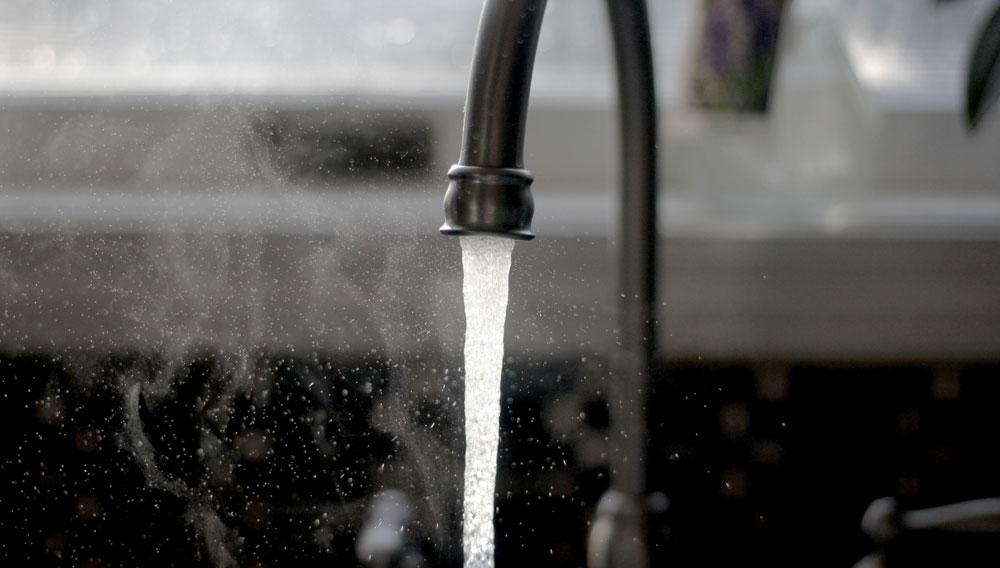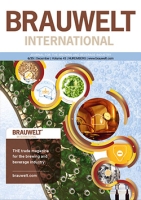This year the 74th Annual Meeting of the American Society of Brewing Chemists (ASBC) took place in Fort Myers, Florida. The popular ASBC meetings draw many of the best brewing scientists from around the world as it provides the opportunity to present their work and share their knowledge. In other words, it provides a platform for global exchange. This year, more than 240 participants from over 15 countries attended the meeting. The attendees at this international conference were global brewers, craft brewers, suppliers and academics engaged in brewing science.
The water quality requirements in a brewery are very complex and vary between different process areas. One issue is for example dissolved gases. Oxygen especially plays a decisive role for high gravity dilution and chase water coming in contact with the final product. In other areas it is often dissolved carbon dioxide that needs to be removed from water to prevent corrosion. This article introduces two examples where water degasification with membrane technology has been installed: at a Boon Rawd Brewery, Thailand, and at Krostitzer Brewery, Radeberger Group, Germany.
Despite dire predictions after the management buy-out from the InBev Group in autumn 2006, the brewery Hofbrauhaus Wolters GmbH, Brunswick, has maintained its position in the market even against the negative trend. With the installation of an energy storage system and the conversion of the wort boiling system to the JETSTAR™ system of GEA Brewery Systems GmbH, Kitzingen, the brewery did not only want to cut energy costs, it also wanted to prevent current peaks – a problem that had often been caused by the old vapour compression system – without affecting the wort quality.
The beverage industry in India is booming. After the US and China, beverage consumption is the third largest worldwide. It looks like it will continue growing. According to market analyses, beverage sales in India will have gone up by more than 60 percent by 2012, compared to 2008 figures. A large number of young people and their enthusiasm for the Western way of life, together with a growing consumption-orientated, high purchasing power middle class create an increasing demand for practical and hygienically packaged food. The potential for the packaging industry in India has been recognised some time ago by the two Trade Fair Organisations, Messe München GmbH and Messe Dusseldorf GmbH. They have decided to combine their resources. In future, drink technology India and International PackTech India will be held simultaneously at one location. The venue will be the Bombay Exhibition Center in Mumbai from 18th to 20th November 2010.

836 beers from more than 30 countries entered the European Beer Star contest 2009. 78 jury members from seventeen countries awarded gold, silver and bronze medals in 41 categories – ranging from German lager to Bohemian Pilsner, English Ale or herb beer. The organizing committee consisting of the German Association Private Brauereien and the Association of Small and Independent Breweries in Europe was quite pleased with the fact that attendance increased by 22 percent compared to the previous year – a record participation. Unlike at similar beer contests, only three types of medals are awarded per category (gold, silver and bronze). That is the reason why the European Beer Star is said to be one of the toughest beer contests all over the world.
In many breweries, degassed water is prepared using a vacuum, column or membrane water degassing process. The patented Danish Iso-Mix mixing system, primarily developed for mixing liquids and for cleaning vessels, can also be used for water degassing in combination with a stripping gas (CO2). The system, operating on the basis of the pressure degassing principle, is installed in Braustätte Mönchengladbach Oettinger for water degassing.
Many companies have realized water quality directly impacts their brand value. Water attributes influence the quality of the end product, the efficiency of the plant and, ultimately, product safety. Since climate change and sustainability are more spotlighted and focused in media, water follows at every turn. Water is not only an ingredient or process aid; it is also a utility and still a critical factor in process efficiency. Water is in direct contact to the largest tangible assets a company has, machinery and equipment. That’s why it is important to have a reliable partner who can support with expertise.
“The beverage industry ignores the financial crisis and achieves five percent growth.” What extraordinary news! Unfortunately, it did not come from Europe. This appeared in a daily newspaper in Sao Paulo reporting on the latest developments in the Brazilian beverage industry the day before the Brasil Brau 2009 began. The reason for this growth was two-fold: not only was the summer a sunny one, but consumers have also had more money in their pockets. Beer and non-alcoholic beverages have benefited considerably from this growth and have generated a ten percent increase in revenue.
Against the background of the difficult business situation many investments are under close scrutiny, including in the water treatment sector. The demands on the technology suppliers are increasing. BRAUWELT International talked to Bernd Hackmann, Business Unit Manager Beverages at Berkefeld, about the current challenges and technical developments in water treatment.
There is a growing awareness among the investment community of the relevance of water footprint as an indicator of corporate risk. During 2008 Citi, JPMorgan, Merrill Lynch and Morgan Stanley all issued water-focused research reports. The Ceres/Pacific Institute report (February 2009) took the discussion a step further with guidelines on sector-specific risks from water scarcity and the impacts of climate change.
For many years, systems for the production of biogas from waste water have been in operation in German breweries. A working group from within the German Brewers Federation wanted to facilitate the information exchange among their members at breweries practicing waste water treatment. Now the current manual is available.
The following article deals with fundamentals of planning breweries and mineral water operations. In the first part “From site to master plan”, details are provided about what specifications a factory site has to fulfil, how the special requirements of the sector can be reflected in basic layouts for functional configurations and what other criteria have to be taken into account at an early stage of planning (infrastructure provisions, routing configurations, integration into infrastructure, extendibility etc.). In the second part, special features associated with planning are examined, taking account of the statutory framework, hygiene requirements, equipment and other aspects specific to the sector.


